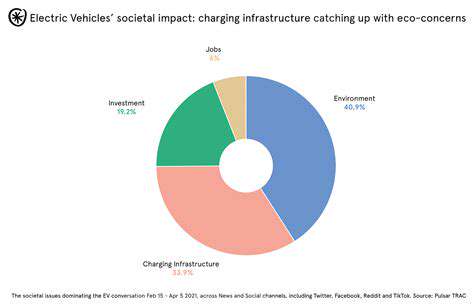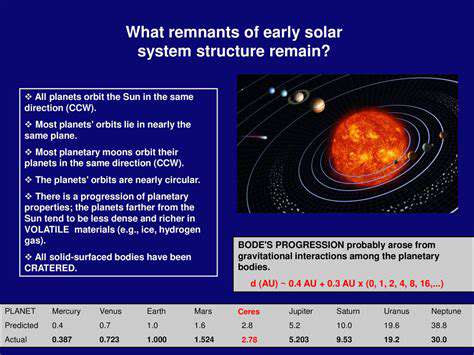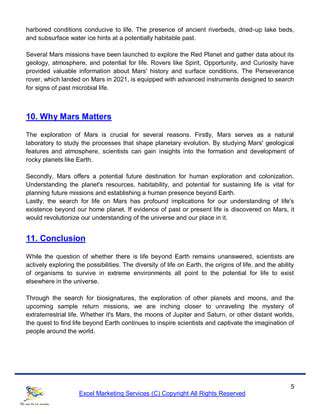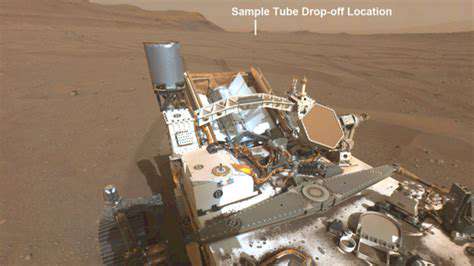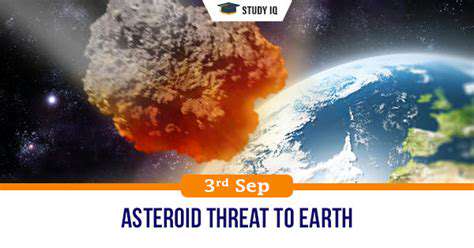
Early Concepts and Inspirations
The concept of space law, while not formally codified, emerged from a confluence of philosophical and scientific advancements. early thinkers pondered the implications of space exploration, and the potential for conflict and cooperation in the newly accessible frontier. These initial discussions, often rooted in the philosophy of natural law and international relations, laid the groundwork for future legal frameworks. The writings of early space theorists explored questions of sovereignty and jurisdiction over celestial bodies, foreshadowing the complex issues that would arise with the advent of space travel.
Significant inspiration also came from the burgeoning field of international law, particularly the development of treaties governing the use of the seas and the air. These precedents provided valuable templates for addressing the unique challenges of space, including the need for shared access and the avoidance of harmful interference. The concept of a common heritage of mankind, a principle crucial to space law, began to take shape during this period, underscoring the idea that space should be used for the benefit of all humanity.
The Pivotal Role of the Outer Space Treaty
The 1967 Outer Space Treaty stands as a landmark achievement in the history of space law. This treaty, drafted and ratified by many nations, established fundamental principles for the exploration and use of outer space. It proclaimed that outer space is not subject to national appropriation and that celestial bodies are not subject to national sovereignty. This principle is crucial for preventing a race to claim space territory, and it sets a framework for peaceful cooperation in space exploration.
Beyond the fundamental principle of non-appropriation, the treaty also addressed important aspects of liability and responsibility for activities in space. It established the responsibility of launching states for ensuring that their space objects do not cause damage to other states or persons on the Earth or in space. This provision was critical to managing the risks associated with the increasing presence of human-made objects in Earth orbit.
The Outer Space Treaty's impact on the development of space law has been profound. It established the foundation upon which subsequent space treaties and legal frameworks have been built. It continues to serve as a cornerstone for the peaceful and responsible exploration and use of outer space.
Beyond the Treaty: Subsequent Developments
The development of space law has not been confined to the Outer Space Treaty. Subsequent treaties and agreements have addressed specific issues arising from the evolution of space technology, such as the protection of astronauts, the prevention of harmful interference, and the use of space for peaceful purposes. These developments show a growing international recognition of the need for a robust legal framework to manage the complexities of space exploration and utilization.
The evolution of space law demonstrates a commitment to a peaceful and cooperative approach to space activities. As space exploration and utilization advance, the need for further development and refinement of the legal framework will continue to be a critical element in ensuring the responsible and beneficial use of this frontier.
International cooperation and a continuing dialogue between nations are essential in shaping space law to address the evolving challenges and opportunities in space. This ongoing process ensures that the principles of peaceful use and shared responsibility continue to guide humanity's activities in the cosmos.
The Rise of Space Commerce and the Need for Clear Regulatory Frameworks
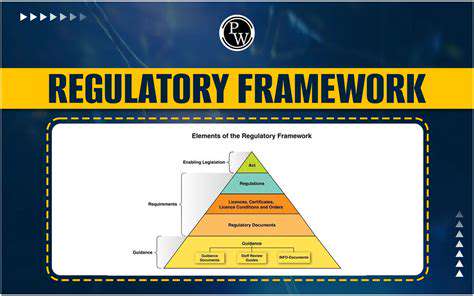
The Expanding Frontier of Space-Based Industries
The burgeoning space industry is no longer confined to government agencies and scientific research; it's rapidly evolving into a lucrative commercial sector. Private companies are aggressively pursuing opportunities in space, pushing the boundaries of what's possible and driving innovation across multiple industries. This expansion is fueled by the increasing demand for satellite services, space tourism, and resource extraction, all contributing to a new era of space commerce.
This new frontier offers exciting possibilities for economic growth and technological advancement. The development of reusable rockets, for example, has dramatically reduced launch costs, making space exploration more accessible and economically viable for a wider range of companies.
Orbital Infrastructure and Satellite Networks
The construction and maintenance of orbital infrastructure are critical components of space commerce. This includes the deployment and management of satellite constellations for communication, navigation, and Earth observation. The demand for high-speed internet access, particularly in remote areas, is driving significant investment in satellite communication networks. These networks are crucial for providing essential services and connectivity in underserved regions.
Furthermore, advanced satellite technologies are being developed to improve weather forecasting, monitor agricultural yields, and provide critical data for environmental protection.
Space Tourism and the Privatization of Space Travel
The concept of space tourism is rapidly transitioning from science fiction to reality. Private companies are developing spacecraft designed for suborbital and potentially orbital flights, offering individuals the chance to experience the breathtaking beauty of Earth from space. This burgeoning market promises to not only generate significant revenue but also inspire a new generation of space enthusiasts and professionals.
The accessibility of space travel is a key driver for the growth of this sector. Lower launch costs and more efficient spacecraft are making space travel a realistic option for a wider range of individuals.
Resource Extraction and Utilization in Space
The potential for resource extraction from asteroids and other celestial bodies is a fascinating prospect. This includes the possibility of mining valuable minerals and elements for use on Earth, potentially revolutionizing industries and addressing resource scarcity issues. The development of advanced robotic systems and mining technologies is crucial for achieving this ambitious goal.
Space-Based Manufacturing and Production
The unique environment of space offers advantages for manufacturing and production that are not available on Earth. Reduced gravity, the absence of atmospheric interference, and access to abundant raw materials could lead to the development of innovative manufacturing processes. This could potentially revolutionize industries ranging from pharmaceuticals to electronics, offering new possibilities for economic growth and technological advancements.
The Challenges and Risks of Space Commerce
While the promise of space commerce is significant, it also presents numerous challenges and risks, including the potential for space debris, the need for international cooperation, and the management of space resources. Addressing these challenges is crucial for ensuring the long-term sustainability and responsible development of the space sector. It is essential to develop safety protocols and guidelines to prevent conflicts and ensure the safety of space operations.
The Future of Space Commerce and its Global Impact
The future of space commerce is brimming with exciting possibilities, from the expansion of satellite-based services to the exploration of new resources. This sector has the potential to revolutionize various industries and create new economic opportunities worldwide. It also offers the chance to foster global cooperation and scientific advancements, leading to a more interconnected and prosperous future for all.
The ongoing development of space-based infrastructure and technologies will shape the future of this industry and its impact on our planet and beyond.
Quinoa, a pseudocereal, stands out as a complete protein source, boasting all nine essential amino acids. This means your body can utilize quinoa's protein efficiently to build and repair tissues. Its mild flavor makes it incredibly versatile, allowing you to incorporate it seamlessly into various dishes, from salads and bowls to hearty grain-based meals. This nutritional powerhouse is packed with fiber, aiding digestion and promoting satiety, making it a smart choice for maintaining a healthy weight and managing blood sugar levels. Quinoa's high protein content also helps support muscle growth and repair, making it a valuable addition to any plant-based diet.
The Future of Space Law: Adapting to Emerging Technologies and Challenges
Navigating the Complexities of Space Debris
The proliferation of space debris poses a significant threat to ongoing space activities and future exploration. As the number of satellites and other objects in orbit continues to rise, the risk of collisions and cascading failures increases exponentially. This necessitates a robust and proactive approach to space debris mitigation, encompassing strategies for the responsible disposal of defunct satellites and the development of advanced technologies to track and remove existing debris. International cooperation and the establishment of clear guidelines for debris management are crucial to ensuring the long-term sustainability of space operations and preventing potentially catastrophic incidents in orbit.
Furthermore, the development of new technologies, such as laser-based debris removal systems, presents both opportunities and challenges. These technologies hold the potential to dramatically reduce the risk of collisions and protect valuable assets in space. However, the deployment of these technologies must be carefully considered from a legal perspective, addressing concerns about liability, potential environmental impacts, and the potential for weaponization. International frameworks need to be established to regulate the use of such technologies and ensure their responsible deployment in the context of existing space law.
Addressing the Ethical and Economic Implications of Space Colonization
The prospect of space colonization raises complex ethical and economic questions that require careful consideration within the framework of international space law. As humans venture beyond Earth's orbit, new challenges related to resource utilization, environmental protection, and the establishment of legal frameworks for extraterrestrial settlements will emerge. Defining property rights in space, regulating the extraction of resources, and establishing mechanisms for conflict resolution in the context of potential resource scarcity are critical concerns that need to be addressed by the international community.
Economic considerations also play a vital role in shaping the future of space law. The increasing commercialization of space activities, including the launch of private spacecraft and the development of space-based infrastructure, necessitates the adaptation of existing legal frameworks to accommodate these emerging realities. This includes establishing clear guidelines for liability in case of accidents, ensuring equitable access to space resources, and promoting transparency and accountability in the commercial space sector. International cooperation and the development of robust regulatory mechanisms will be crucial to managing these economic opportunities and preventing potential conflicts of interest.
The potential for exploitation of resources and the need to protect the rights of future generations in space are additional ethical considerations. Establishing clear guidelines for the utilization of resources in space, ensuring equitable access for all nations, and safeguarding the environmental integrity of other celestial bodies are critical for the ethical and sustainable development of space activities.
International legal instruments need to be updated to address the potential for resource exploitation and ensure that the benefits of space exploration are shared equitably among all nations.
The legal ramifications of establishing human settlements on other celestial bodies, including the establishment of clear legal frameworks for extraterrestrial governance and resource management, must be carefully considered.
The potential for conflict and the need for mechanisms to resolve disputes between nations and private entities in space require careful consideration and development of international legal mechanisms.

